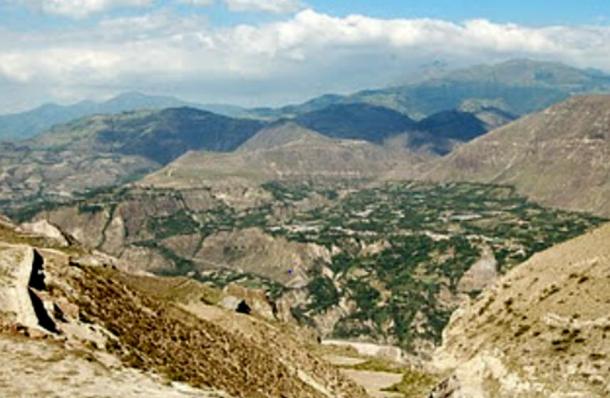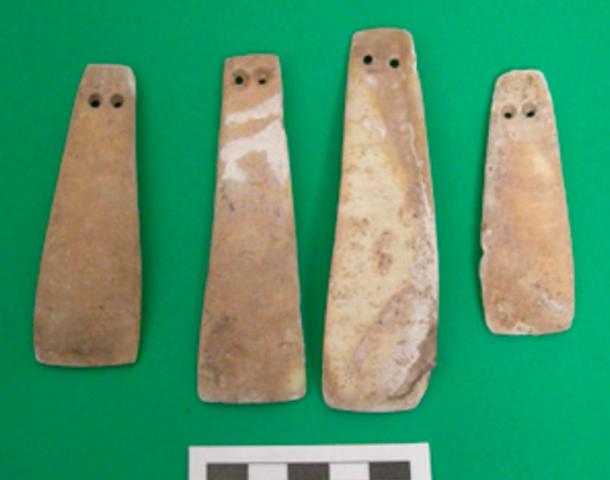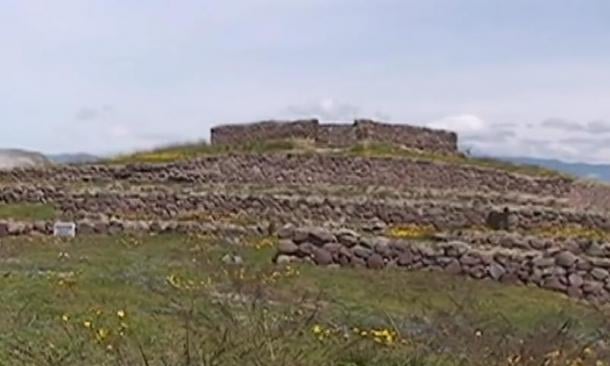Author: ALICIA MCDERMOTT
The ruins of the Pucará de Rumicucho are well-preserved walls of an Pre-hispanic, Incan fortress. They are located a one hour drive north of Quito, Ecuador. The fortress was built in the end of the 15th century by Tupac Yupanqui, the tenth Sapa Inca (God Emperor). However, archaeologists have shown that the site predates the Inca period and served as more than just a military stronghold. The key location of the site corresponds well with astronomical activities as well. Today the ruins are well-maintained and frequent tourist visits, as well as indigenous ceremonies, take place there.
Architectural Features of The Stone Fortress
The name Pucará de Rumicucho, is Kichwa meaning fortress (Pucara) of stone (Rumi) corner (cucho), often translated as The Stone Fortress. This is an obviously descriptive name for at least one of the previous uses of the site. It has also been called Lulumbamba – “fertile plain.” It is believed that it was constructed between 1480 and 1500, by the Inca ruler Tupac Yupanqui.
The structure on the site consists of five terraces and measures at 400 meters (1312 feet) long, 100 meters (328 feet) wide and 20 meters (65.5 feet) high. The cut-stone walls are made up of pucarui (reddish color) and pugshi (volcanic ash) as well as chocoto and pumice stone. The dating of the fortress construction of between 1480-1500 has been decided upon by this particular stone and mortar combination.
- The Inca-Caranqui Water Temple of Ecuador: A display of wealth and skillful hydraulic engineering
- Decapitation discovery reveals gruesome practices of the ancient Incas
- Have explorers in Ecuador found ‘Lost City of Giants’?
The stone fotress is situated atop a hill, providing a perfect view not only of invading forces, but also of the mountains surrounding it on three sides and the valley to the South.

Artifacts Discovered at the Site of Rumicucho
Archaeologists have been excavating the Pucará de Rumicucho since 1976 when Ecuadorian archaeologist, Eduardo Almeida, started his study of the site financed by the Ecuadorian Central Bank Museum. It was continually excavated from that time until 1990.
Rumicucho was rich in cultural material and some of the artifacts encountered at the site include: stone tools, metal, ceramic pottery (mostly creted by local Pre-Inca cultures), and shell and camelid bone objects such as needles, hairpins, awls and zoomorphic figurines. Today these artifacts are mostly exhibted in the Banco Central Museum in Quito, although an on-site museum has recently opened with the goal to return materials “home” and to increase the cultural and social value of the site.

The Multi-Use Site of Pucará de Rumicucho
The Pucará de Rumicucho is part of a chain of Incan fortresses showing their expansion and military rule over captured lands. The Incan military infrastructure often included paths, bridges, tambos (inns or resting places) and pucaráes (fortresses). The Pucará de Rumicucho was constructed as a military control center in the Quito territory, helping to advance the conquest over the Cayambe and Caranqui villages.
Although the Rumicucho fortress was arguably constructed during the Inca period, there is a strong belief by archaeologists that the site was used before the Incan invasion of Ecuador. Archaeological evidence suggests that it may have also been used by the Pre-Incan Caranquis, Quitus, Panzaleos and Cuasmal. Another explanation for Pre-Inca artifacts is that the Incas living at the site shared the space with the local communities.
Archaeologists have divided the site of Rumicucho into three sections for different uses based on their discoveries. There is the ceremonial section on the third terrace, a ritual and food consumption space on the first and second terraces, and it is believed that the rest of the space was used for workshops and housing.
- Secrets of Vilcabamba, Playground of the Inca and Valley of Longevity
- Andean Village comes alive with Pawkar Raymi, Equinox Celebration to honor Mother Earth
- Father Crespi and the missing golden artifacts
The Secrets of the Oval Rooms and Rumi Jatun
Two oval rooms and the Rumi Jatun (giant rock), which is aligned perfectly with two mountains have lead many to believe that the site of Rumicucho also had an important astronomical role. Some have suggested that the rock represents the sun during the day and at night it can be filled with water as a mirror of the stars. The two rooms have been associated with the solstices. As is known, the Inca civilization had an advanced knowledge regarding astronomy and often built their structures with it in mind.
The two rooms and the giant rock are located in the northern part of the ruins, and despite rigorous studies, it has yet to be discovered what secrets they hold. It has only been agreed upon that they were not casually created.

The Secrets of the Oval Rooms and Rumi Jatun
Two oval rooms and the Rumi Jatun (giant rock), which is aligned perfectly with two mountains have lead many to believe that the site of Rumicucho also had an important astronomical role. Some have suggested that the rock represents the sun during the day and at night it can be filled with water as a mirror of the stars. The two rooms have been associated with the solstices. As is known, the Inca civilization had an advanced knowledge regarding astronomy and often built their structures with it in mind.
The two rooms and the giant rock are located in the northern part of the ruins, and despite rigorous studies, it has yet to be discovered what secrets they hold. It has only been agreed upon that they were not casually created.
Modern day Uses of the Stone Fortress Site
These days the Pucará de Rumicucho, like many Andean archaeological sites, serves sacred connection to the past. The location on the equator has connected it to a ritual of the “hombre sin sombra” (man without a shadow.) Many indigenous shamans have used this space for rituals during solstices.
The site is also popular for tourists and students. The well-maintained space and beautiful views has created interest for local and to a lesser extent foreign tourism. For these reasons the stone fortress has been routinely visited since Almeida’s excavations in 1976.
Due to the number of visitors to the site for sacred, educational and touristic purposes, there is a real concern by local authorities for the future of the Pucará de Rumicucho. The urban advance also threatens as Ecuador’s capital city continues to grow. One can hope that the well-planned Incan astronomy as well as the archaeological and sacred value of the site will preserve it.
Featured image: The ruins of the Pucará de Rumicucho, San Antonio de Pichincha, Ecuador (INyar/Flickr)


